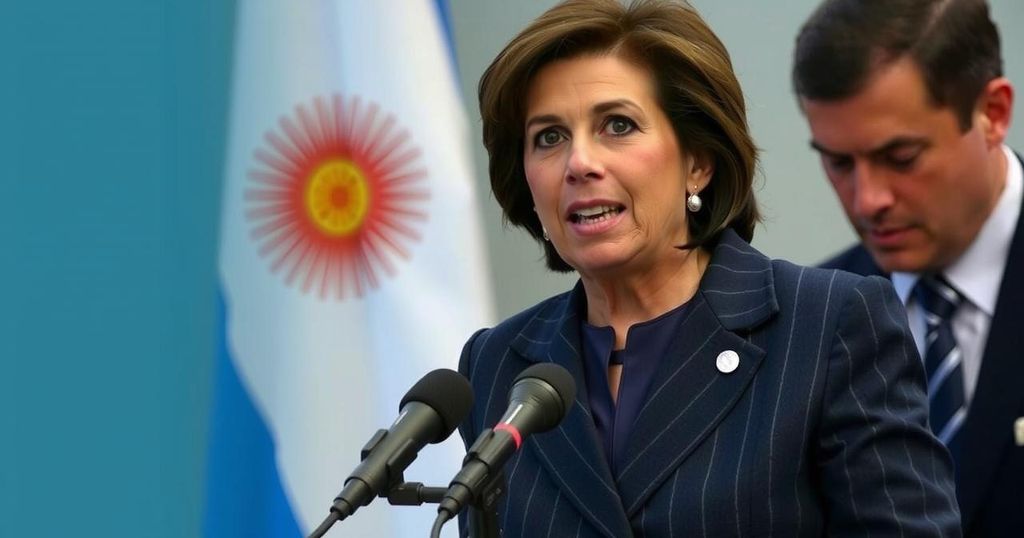Argentina’s Supreme Court has mandated former President Cristina Fernández de Kirchner and others to stand trial regarding the 1994 Iran memorandum related to the AMIA bombing. This ruling follows the rejection of defense appeals and reestablishment of accusations made by late prosecutor Alberto Nisman, which allege attempts to conceal the identities of the bombing’s perpetrators. The trial underscores the ongoing quest for accountability in one of Argentina’s deadliest terrorist attacks.
On Thursday, Argentina’s Supreme Court directed former President Cristina Fernández de Kirchner and several co-defendants to face trial regarding the 1994 memorandum of understanding with Iran. This memorandum pertains to the investigation of the AMIA Jewish community center bombing, which occurred in 1994 and resulted in 85 fatalities and over 300 injuries. The court dismissed all defense appeals, affirming a previous ruling that revoked all acquittals linked to the case initiated by the late AMIA special prosecutor Alberto Nisman, who alleged a cover-up of the bombing’s perpetrators.
The case gained momentum following Nisman’s accusations in 2015, which contended that the memorandum was a guise to protect those accused of the bombing. Nisman alleged that Fernández de Kirchner’s administration attempted to lift Interpol notices for the suspects in exchange for economic benefits. This memorandum, signed by Fernández de Kirchner in 2013, allowed prosecutors to question suspects outside of Argentina, but never took effect. The Jewish community in Argentina condemned the agreement, labeling it a cover-up.
Despite the initial acquittal of all defendants in October 2021 by Tribunal Oral Federal No. 8 due to a lack of evidence of a crime, the Supreme Court’s recent ruling reignites the case’s judicial proceedings. Amidst the ongoing uncertainty around the circumstances surrounding Nisman’s death and the unresolved accountability for the bombing, the approval of the trial reflects the seriousness with which the Argentine judicial system addresses allegations tied to one of the country’s deadliest terror attacks.
As the trial approaches, the matter is set to significantly impact both the political landscape and the ongoing discourse surrounding accountability for terrorism in Argentina. With prior judgements now overturned, this new development underscores the complexities surrounding this politically sensitive issue, as well as the implications for Fernández de Kirchner, whose presidency remains marred by these allegations.
The AMIA bombing of 1994 stands as one of Argentina’s most devastating terrorist attacks, occurring at the Jewish community center and resulting in significant loss of life and numerous injuries. The incident has been shrouded in controversy and political machinations for decades, particularly following the accusations made by Alberto Nisman, who alleged governmental complicity in protecting individuals tied to the attack. In 2013, a contentious memorandum between Argentina and Iran aimed to facilitate the questioning of suspects was signed, prompting accusations of a cover-up underlining the political tensions associated with the bombing and subsequent investigations.
The ruling by Argentina’s Supreme Court compelling Cristina Fernández de Kirchner and others to stand trial represents a pivotal moment in the ongoing quest for justice following the AMIA bombing. As the judicial process unfolds, it not only brings to light the complexities of political accountability regarding acts of terrorism but also reignites discussions surrounding national security, the relationship with Iran, and the pursuit of truth in the aftermath of tragedy. The developments in this case are particularly significant for the Jewish community and the families of AMIA victims, illustrating their enduring struggle for justice and recognition.
Original Source: www.batimes.com.ar







